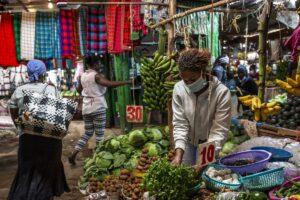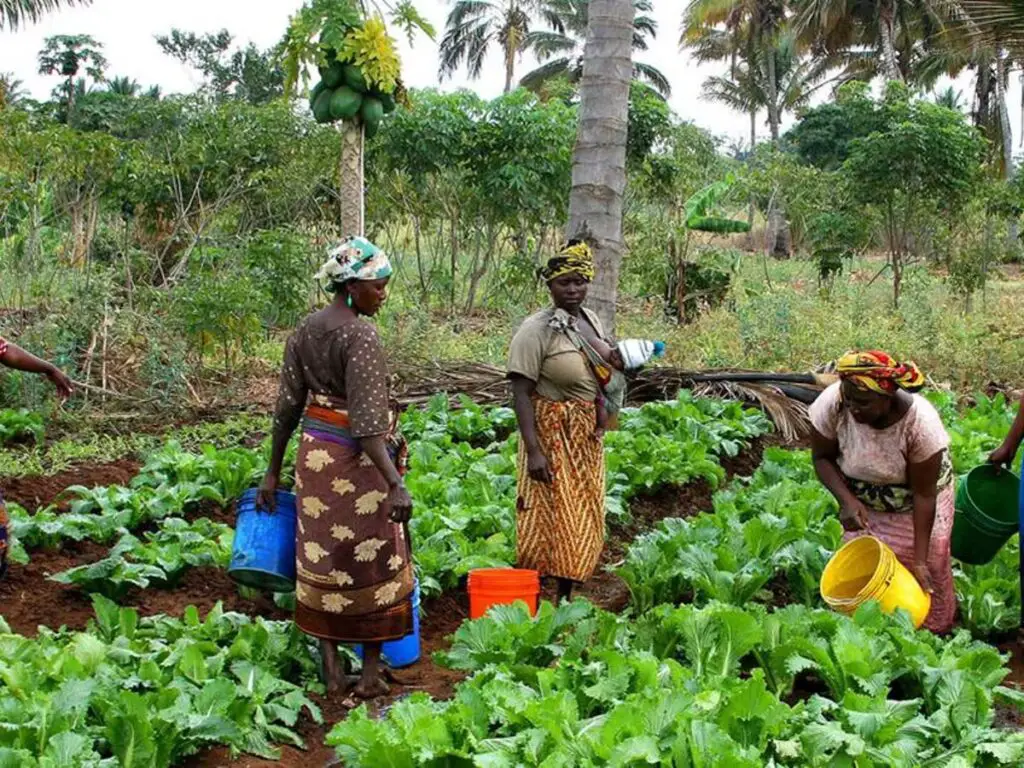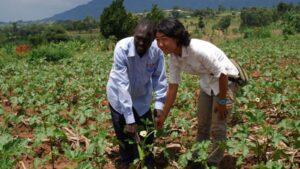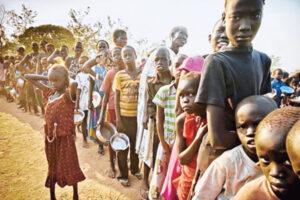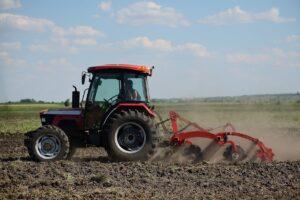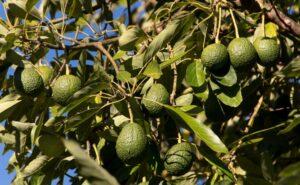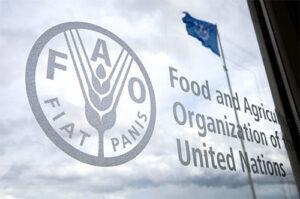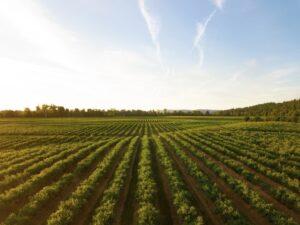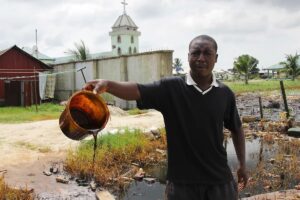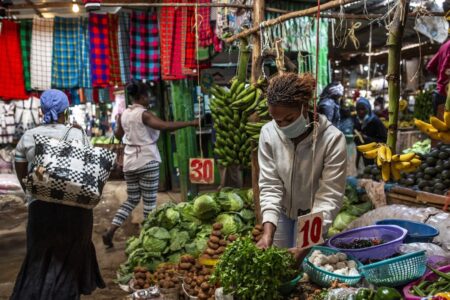- Kenya, Tanzania braces for torrential floods as Cyclone Hidaya approaches
- EAC monetary affairs committee to discuss single currency progress in Juba talks
- Transport and food prices drive down Kenya’s inflation to 5% in April
- Payment for ransomware attacks increase by 500 per cent in one year
- History beckons as push for Kenya’s President Ruto to address US Congress gathers pace
- IMF’s Sub-Saharan Africa economic forecast shows 1.2 percent GDP growth
- The US Congress proposes extending Agoa to 2041, covering all African countries
- Millions at risk of famine as fuel tax row halts UN aid operations in South Sudan
Agribusiness
- Expensive loans remain a significant issue across populations engaged in agriculture in Nigeria, Tanzania and Zambia.
- A report by the Alliance for Green Revolution in Africa (AGRA) says capital injection is a significant strategy agribusinesses use to survive.
- Moreover, agribusinesses face high operational costs from fuel prices and low-profit margins driven by currency devaluations.
The lack of agriculture-friendly financial systems saw agribusinesses turn down expensive loan options in the market, with only 15 per cent taking on commercial capital in 2023 and the rest sourcing capital from friends, family and their business savings.
The incentives by the government channelled towards agriculture failed to adequately cushion Agribusinesses from economic shocks, a new report by Alliance for Green Revolution in Africa (AGRA) has revealed.
The African Agribusiness Outlook survey is conducted annually to gain insights into the sector’s top priorities, how they address challenges, and what SMEs see as opportunities.
A reflection …
- Sustainable agriculture employs 65-70 percent of Africa’s labour force.
- Only two to three percent of African renewable water resources are usable compared to the 5 percent worldwide.
- In 2019 a report revealed that Africa produced more than 50 percent of the world’s cassava.
A severe drought has left millions of people in Africa dependent on grain from Ukraine, a country at war with Russia, yet a number of crops that could support more climate-resilient and healthful food systems in sub-Saharan Africa continue to receive limited attention.
Across Africa, cassava, sugarcane and maize stand out for supporting millions of families in governments’ quest to maintain food security
Sustainable agriculture is one of the highlights that support Africa’s economic development. For decades these cash crops in Africa have accounted for almost 20 percent of the entire continent’s revenue. It has further advanced and introduced concepts such as agritech, significantly teaching better farming …
- Limited internet access is inhibiting the uptake of agricultural innovations across Africa.
- While Agriculture remains the backbone of Africa’s economy, farmers in rural areas are yet to benefit from the innovative solutions designed to increase productivity within the sector.
- Innovative solutions are the key to boosting employment and increasing youth participation in the agricultural sector.
Limited internet access is inhibiting the uptake of agricultural innovations across Africa. This is according to Hon. Frank Tumwebaze, Uganda’s Minister for Agriculture, Animal Industry and Fisheries.
Speaking at the sidelines of the two-day Africa-Korea Agtech Innovation Summit held in Nairobi, Hon. Tumwebaze, said, “While Agriculture remains the backbone of Africa’s economy, farmers in rural areas are yet to benefit from the innovative solutions designed to increase productivity within the sector.”
The Uganda Minister emphasized the role of Governments’ investment in internet penetration across Africa’s rural areas. This will aid in adoption of …
The reasons for the current position are both economic and political. The intent of this article is to explore the economic side of the country’s decline with the view to put forward new areas of economic significance that can give rise to the recovery of the country’s fortunes.
These new areas if adopted and implemented will most certainly result in economic green shoots and with time they will transform into major industries anchoring the economy on the same scale and extent that mining and agriculture did in the former years.
The political side of the equation of Zimbabwe’s economic decline has been written about extensively and it is beyond the scope of this article. However, it must be noted and borne in mind that it is immensely difficult to separate politics from economics as these two concepts enjoy a very strong symbiotic relationship.…
“Before the Forest and Farm Facility Programme (FFF) reached out to us, I faced many challenges in marketing the avocado produce from my farm,” says Paul Mitei, a farmer from Kiptoben Village, Nakuru County, Kenya.
Paul says he wanted to know more about how the avocado and tomato value chains worked, and the proper inputs that are critical to avocado cultivation and meeting market demands.
Paul is married with 3 children and has a 5-acre farm where his family tends to avocado trees. He says he started to grow avocadoes because other farmers in his community were growing them, but at that time he had poor crop management skills which led to low fruit yields, no profit and a lot of frustration. .
To improve his knowledge and capacity on the avocado value chain, he joined the Nakuru Small Holder Fruit Producers Association (NASFPA) with the hopes of higher sales …
Kenya’s Ministry of Devolution together with the Food and Agriculture Organization say the country requires at least US$87 million to ensure food security in all the 23 Arid and Semi-Arid Lands Counties, between August and December 2021.
In a statement, FAO says several interventions need to be done, at a time when the East African nation has been facing a myriad of challenges in the recent past including two desert locust invasions, the COVID-19 pandemic and poor rains that have resulted in food scarcity.
If sourced, the funding will be used for several interventions and cover various areas, among them provision of feed and supplements and livestock off-take and animal health services.
Additionally, FAO plans to provide drought-resistant seeds to farmers in the counties, as well as milling of staple commodities.
Other interventions include water trucking, rehabilitation and maintenance of water facilities, fuel subsidies for motorized boreholes and water …
Looking at the bigger picture, speculations are that the milk and milk product levies and taxes are designed to lure Uganda to choose favourably towards other trade issues that are pending.
As local Ugandan media puts it; “Uganda maintains that if there are issues that need to be addressed, they can be handled through bilateral arrangements or the regional trade agreements within the East African Community instead of using arbitrary means such as high taxes.”
Squeezing Uganda to act in its favour, Kenya has also imposed what Uganda is terming ‘a restriction to Ugandan diary products since January 2020.’ Notably, Kenya is Uganda’s largest milk trading partner in the region, yet for over an year now, Kenya has maintained restrictions on Ugandan milk products despite the East African Community (EAC) common market protocol.…
FAO says that in addition to lost agricultural assets, the state of core basic services across northern Ethiopia is impeding relief efforts.
“Electricity and fuel are lacking, cash and credit are not to be found, and there is only one functional road in and out of the region”, noted Paulsen.
According to the organization, the conflict commenced at the peak of what would have been the main Maher season harvest before many households had the opportunity to harvest their crops.…
Data by the bloc reveals that the sector provides livelihoods for about 80 per cent of the region’s workers, and accounts for about 65 per cent of foreign exchange earnings.
The continent, which COMESA Secretary General Chileshe Kapwepwe said last month has the potential to feed its self and export to the rest of the world, has remained a net food importer for the last 15 years.…


